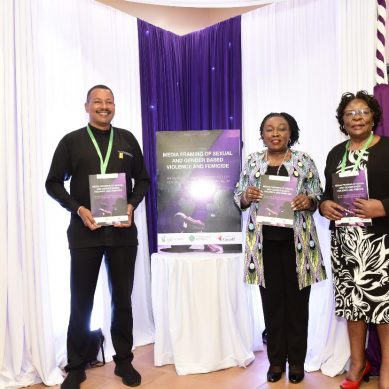
While the new morality laws have not directed impacted humanitarian activities in Afghanistan, it is not lost on foreign workers that things can take a dramatic turn within a very short time. A female NGO worker from a leading European organisation, says – so far at least – the law has not been impacting their aid operations but that this fear is always in the back of the minds of their Afghan staff.
The fear is ever-present.
“There is a very real sense it could happen at any time,” said the NGO worker, who asked for anonymity due to the sensitive nature of the issue. “If it is implemented, it would have a major impact on how we operate. It would make us question a lot of things.”
In the initial days, her male staff worried about things like the length of their facial hair — which is stipulated in the law — while the female staff worried about mentions of how they should dress and that they should only leave the house alone if absolutely necessary.
She reiterated that so far their Afghan staff members have been able to continue their work largely unimpeded but that there is no guarantee that will last: “Our female staff are scared; our male staff are scared.”
Of some solace to Decker and others is that the new law hasn’t yet been followed by the kind of en masse iron-fisted enforcement that some – both inside and outside the country – initially feared.
Without doubt, the part of the law that has received the most media attention is Article 13, which stipulates that a woman’s voice – when engaged in singing, reciting, and reading in public – is considered awrah, or an intimate part of the body. It goes on to say that a woman should “cover” her voice when out in public.
Foreign media was quickly inundated with stories claiming that Afghan women would no longer be able to speak in public. However, as Saad Mohseni, the owner of Afghanistan’s largest private television station, stated during an online interview, women continue to host and appear on programmes on privately owned media broadcast across the country.
Although an October 22 report, denied to The New Humanitarian by the Islamic Emirate and private media sources, that the Taliban is planning to convert state TV stations to radio outlets may offer renewed cause for concern.
Obaidullah Baheer, an Afghan professor and lecturer who has lived between Kabul, New York, and London since the return of the Taliban, said much of the media narrative is due to the Islamic Emirate’s failure to explain their laws to the Afghan public and the outside world.
“If they hadn’t opened the door for it being misinterpreted, it wouldn’t have created such a buzz,” Baheer said about the failure to clearly explain what they meant by the meaning of a woman’s voice being intimate. “Yes, that leaves the door for people to be lenient, but it also leaves the door open for people to be strict… which leaves a lot for the enforcer to decide.”
For its part, the Islamic Emirate has said that it has instructed vice and virtue enforcers to approach implementation of the law “with softness” – something also stipulated in the law itself, which devotes several articles to how enforcers should behave with the public.
But Baheer said the codification of these laws as official policy is what is particularly scary for the Afghan people, even if they are not being enforced with the same harshness and violence as they were during the previous period of Taliban rule in the 1990s.
“When the state wants to violate your private sphere and dictate to you how you look and how you act, that’s problematic,” Baheer said. ”Even if the law is softly-worded, these enforcers have a very strict view of what is to be deemed moral, so it can cause a lot of problems.”
Damaging false perceptions
Sultan, the entrepreneur and rights activist, said the nuance and complexity of the situation on the ground too often gets lost in the media and political discourse on Afghanistan, especially as it pertains to the Taliban.
“The domestic Western audience has only one view of the situation. It’s very simplistic and black and white,” Sultan said, regarding the difficulties she faces when she tries to discuss Afghanistan with decision-makers in Washington.
One perception that both Sultan and others, including Decker, are trying to change is that any aid given to the country will end up in the hands of the Taliban.
“That perception is hurting the chances [of] aid, because it makes it easier for people to say it’s better to send nothing at all,” Sultan said.
In a previous conversation with The New Humanitarian, Decker also raised this issue.
“We have verification mechanisms. We have monitoring mechanisms. We have accounting mechanisms. We are very confident that this is not happening,” Decker said. “But… we have never been able to overcome this conspiracy that somehow we are bringing money in and giving it [to the Taliban].”
But given the response of Canada, the Netherlands, Germany and Australia, the European NGO worker said she feared the political fallout from the law would lead already hesitant governments to halt or reduce funding to Afghanistan. With just over three months left of 2024, this year’s humanitarian response programme has only seen 24 per cent of its $3.06 billion funded. She said that during the Dubai meeting, there was definitely a sense that the new law “could be used as an excuse: ‘The Taliban are too difficult to deal with.’”
Despite such concerns, Decker said the law has not yet led any countries that were increasing their diplomatic engagement with Afghanistan to radically change course. “A number of countries have visited Afghanistan or have a more permanent presence on the ground without recognising the Taliban as the legitimate government of Afghanistan,” she said.
In the last year, the UK’s Doha-based chargé d’affaires, Robert Chatterton Dickson, has made several trips to Kabul. Japan has also kept its embassy in the Afghan capital open, while the UAE and Uzbekistan now officially recognise the Islamic Emirate’s diplomats as ambassadors.
However, Decker said that while she appreciates that both Afghan people and international organisations are finding workarounds that enable them to carry on with their social lives and with their work, the US and other countries must focus on the written laws, not the exceptions.
“The law has been published, and I think it’s important to make it clear that we will make policy decisions on the basis of edicts they release; more so than on how those edicts are implemented,” Decker said. “A statement of policy is a statement of policy. We will respond accordingly.”
- A Tell report / Republished with permission from The New Humanitarian







